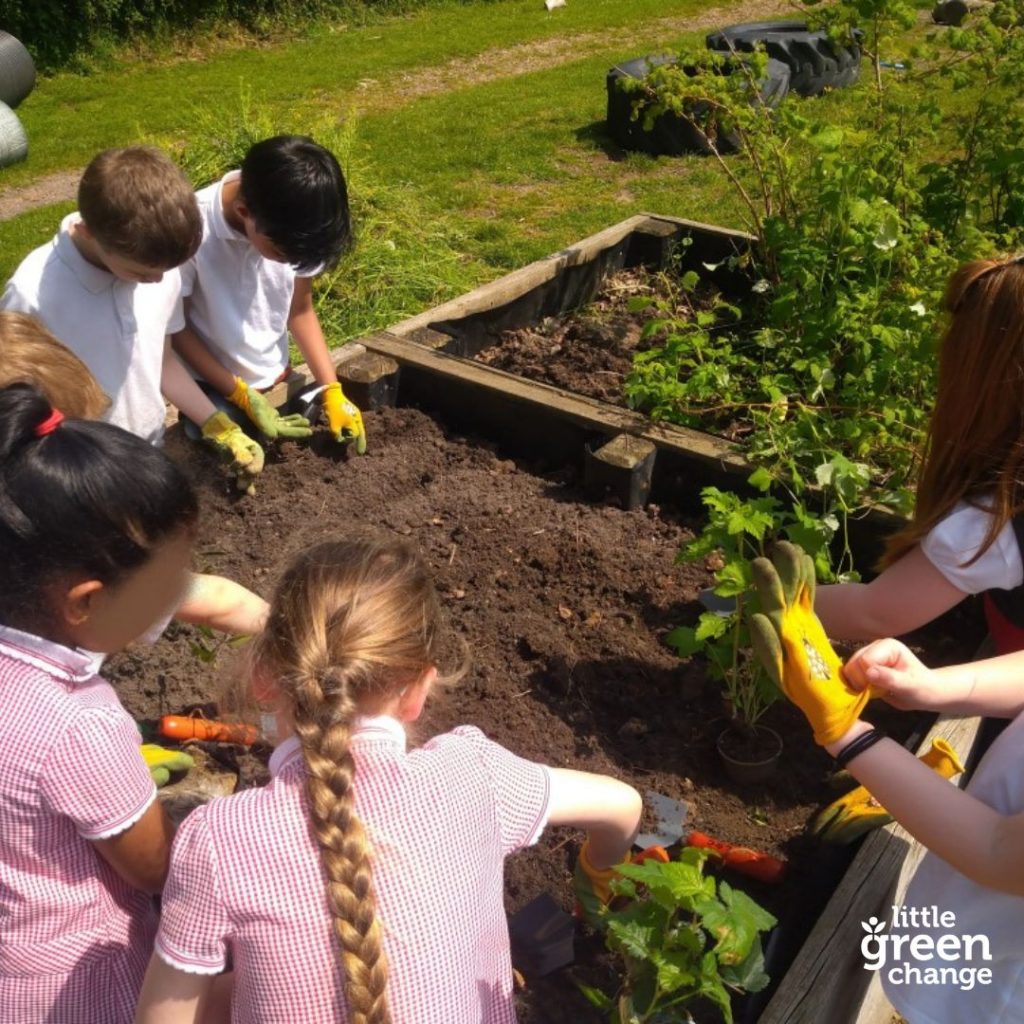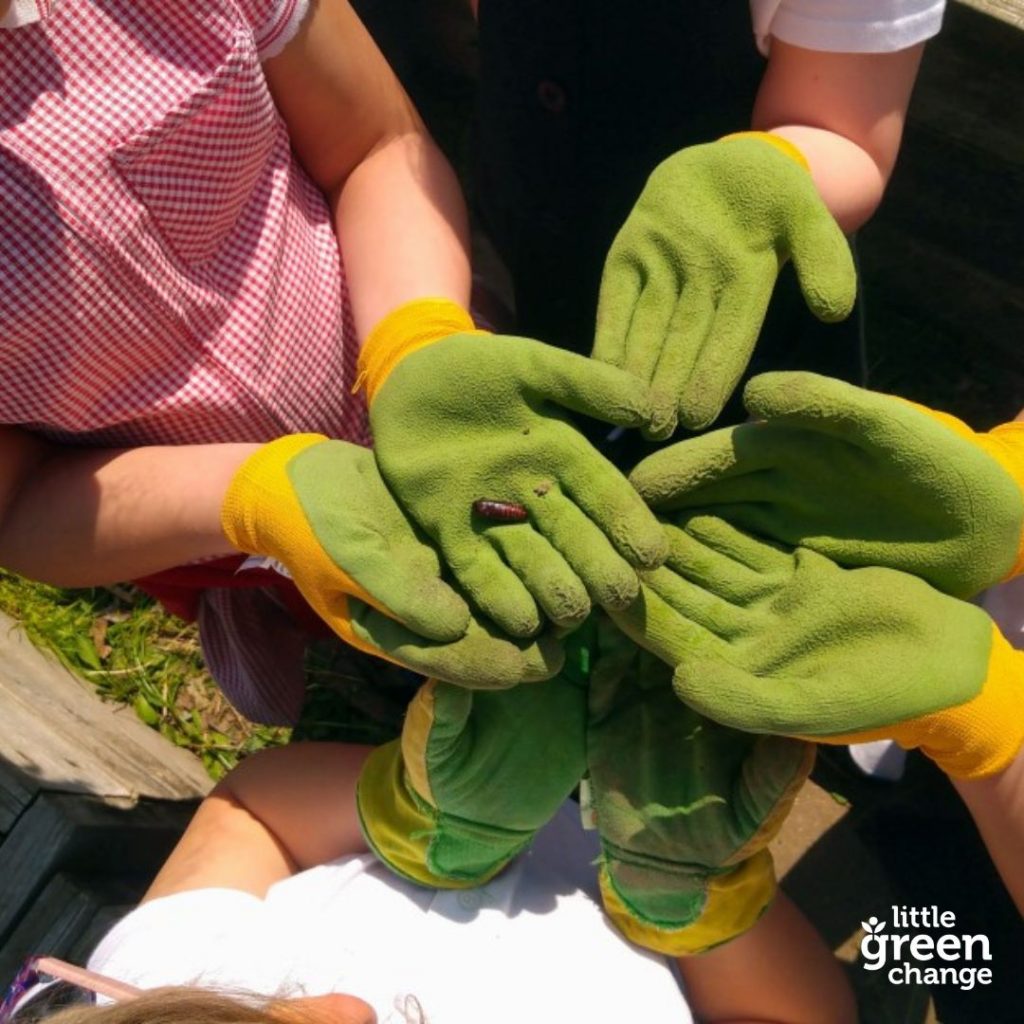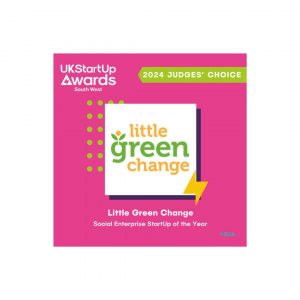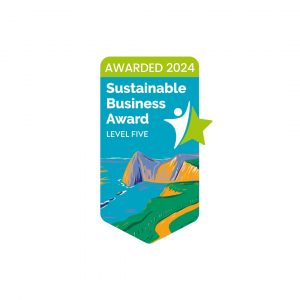Seedlings Grow Your Greens project
Funded by Devon County Council's Growing Communities Fund, Little Green Change's Seedlings Grow Your Greens project aims to target children aged 5-13, promoting the health, economic and environmental benefits of growing your own food, and enabling children to take part in food growing activities organised by us. You can find food growing advice, and more information about this project including a selection of feedback gained, below.
If you are a state-funded primary or secondary-aged school in Devon, or a community space such as a library or community centre that would like to benefit from the free seed sowing and food growing activities offered through this project, please contact us.



Why grow your own food?
Health benefits: Nutrition.
Locally grown food is generally fresher, tastier and more nutritious, as it’s harvested at its peak and is eaten soon after picking, reducing nutrient loss.
Growing fruit and vegetables also encourages children to try food they might not have eaten before and helps to raise awareness about healthy eating. The NHS's 5 A Day campaign recommends eating a minimum of 400g of fruit and vegetables a day, providing a great source of fibre, vitamins and minerals, and reducing health problems including heart disease, stroke and some types of cancer.
Health benefits: Mental health.
Horticulture (gardening) has many well documented mental health benefits, with social prescribing frequently occurring through the NHS. Taking responsibility for a plant or plants, and doing this in your own time, does not replace medical treatment, but it can help people who need connection rather than just medication.
Environmental benefits.
Growing food locally, rather than buying it from a supermarket, means it travels shorter distances from the site it's been grown on to your plate. It also requires less packaging and storing, and can reduce our reliance on some overseas produce; all of which reduces carbon emissions.

Financial benefits.
The on-going cost of living crisis is hugely impacting many people across Devon. In addition to energy and petrol price hikes, the cost of many food items has increased with the price of vegetables up by 14 per cent on average, and fresh fruit rising by 7.8 per cent to October 2023. This is at a time when a lot of people's wages have remained stagnant, failing to rise in line with inflation.
Growing your own food can reduce the amount you spend on fruit and vegetables, especially when using our cost effective guide below.
How to grow your own food on a budget.
There are lots of ways you can grow a variety of fruit and vegetables really cheaply. Here are a few of our top tips.
Reuse pots and containers.
Garden centres often have an area with plastic plant pots of various sizes, which are free to take. Great for seed sowing and growing on seedlings.
Toilet roll cardboard tubes and egg boxes can both act as indoor seed starters, protecting plants from the worst of the late Winter and early Spring frosts by keeping them inside on a windowsill for the first few weeks.

Growing from seed.
This is one of the most cost effective ways of growing plants, especially if you've collected the seed yourself the previous year from the fruits and vegetables you want to grow, or gained seed through a free seed swap event, friend or family member. Seed swaps usually occur in February and March (the start of the growing season) and in autumn (when people are able to collect seeds from summer flowering plants).
Check out Gardeners' World's how-to guide to saving vegetable seeds by clicking here.

Dividing perennial food plants.
Lifting and dividing perennial plants that grow in clumps, like chives and garden mint, is an easy and free way of getting new plants from existing ones. The best time to do this depends on the plant, but is usually after it has finished flowering.
Dig the plant out of the ground, trying to ensure you get as much of the roots out as possible. Then tease the root ball apart or chop it using a sharp knife or a spade. Replant in the locations you want and ensure they are well watered until the roots are established. Chives (pictured below) do well planted in pots or directly in the ground, and they also act as fun, edible straws for kids.

Make your own fertiliser.
If you live close to the sea, and have access to seaweed washed up onto the shore, this can easily be turned into fertiliser. Fresh seaweed can be dug into the soil like manure as a soil improver, or you can chop the seaweed up, add water, and let it start to breakdown over the following days or weeks in a suitable container (like a reused plant fertiliser bottle), until the water turns brown and is ready to add to your plants.
It is worth noting that, legally, there is no public right to collect seaweed from the beach unless you own the beach and it is not designated a site of special scientific interest or a special area of conservation. If you plan to gather seaweed, it is always advisable to check with the land owner and the local council first.
If you don't live by the cost, or have access to free seaweed, you can often get free horse manure from local riding centres or stables, if you're able to collect it. Manure should be well rotted before it is added to plant beds.
Having a wormery is also a great way of turning your kitchen waste, including fruit and vegetable peelings, egg shells, bread, pasta and rice, into food for your plants. Read more about wormeries here.
Make your own compost.
If you have the space to make your own compost, we recommend giving it a go. You don't need a huge space, just enough for a compost bin or two.
Read the Royal Horticultural Society's guide to making compost by clicking here, and regularly check sites like Facebook Marketplace for free compost bins.
Collect your own rainwater.
Using rainwater is a free resource which can help to water the plants you grow during dry weather. There are a variety of containers you can collect water in including bins, barrels and tanks.
Some water companies, including South West Water, offer free water butts to householders that have a high annual, garden water usage. Alternatively, you can often find free, or low cost, used water butts on websites like Facebook Marketplace.

Project feedback
"An amazing opportunity for children to learn life skills and understand the wider world. It is also something schools struggle to find the time for, although incredibly important. Thank you.“
Is your school now likely to grow fruit and vegetables themselves again in the future? - "Yes".
Did the children learn anything new as a result of these sessions? - "Yes".
Would you recommend this session to other primary schools interested in food growing? - "Yes".
Is your school now likely to grow fruit and vegetables themselves again in the future? - "Yes".
Did the children learn anything new as a result of these sessions? - "Yes".
Would you recommend this session to other primary schools interested in food growing? - "Yes".

Mr White
Year 5/6 Teacher. Commenting on our sessions at Axminster Community Primary Academy.
"Really enjoyed by all the children and families who attended. “
How would you rate this free seed sowing session out of 10, 1 being very poor and 10 being excellent. "10".
Would you recommend this session to other libraries or community centres interested in holding seed sowing/planting events? "Yes".
How would you rate this free seed sowing session out of 10, 1 being very poor and 10 being excellent. "10".
Would you recommend this session to other libraries or community centres interested in holding seed sowing/planting events? "Yes".

Caroline Foster
Axminster Library Supervisor. Commenting on our community session at Axminster Library.
"Great, purposeful activity to join in with. They're looking forward to seeing them grow! Thank you."
Are you likely to grow fruit and vegetables or edible plants again in the future? - "Yes".
Did you (or your children) learn anything new as a result of this activity? - "Yes".
Would you recommend this free activity to other families with children? - "Yes".
Are you likely to grow fruit and vegetables or edible plants again in the future? - "Yes".
Did you (or your children) learn anything new as a result of this activity? - "Yes".
Would you recommend this free activity to other families with children? - "Yes".

Olivia M
Parent commenting on her children's participation at our seed sowing activity at Uplyme Fete.

Awards
We're proud to have won the Green/Eco Business of the Year Award at the Jurassic Business Awards 2024, a Judges' Choice award at the UK StartUp Awards 2024 South-West, and a Sustainable Business Award 2024 from Litter Free Dorset. We're also finalists at the The Small Awards 2024, and The Good Small Business Awards 2024. Our Founder and Director, Clare, is a finalist at the BBC Make a Difference Awards 2024 (Green Award category) for her work with Little Green Change.






We're accredited members of Social Enterprise UK, and Dorset Climate Action Network



